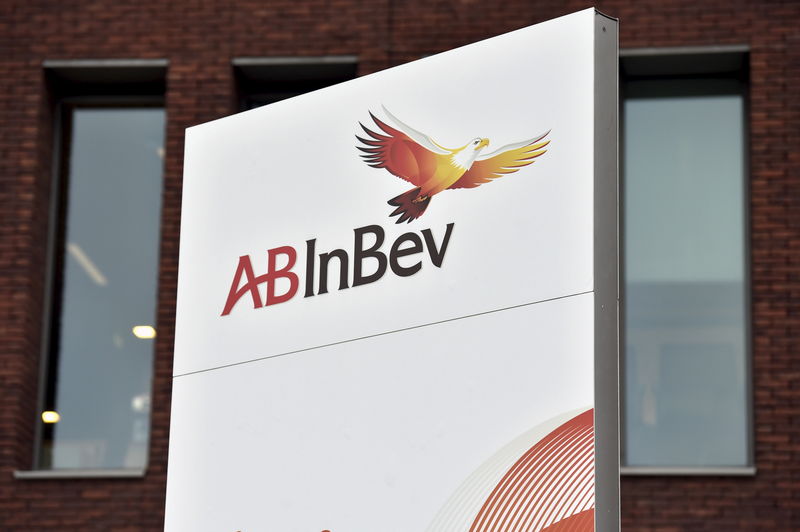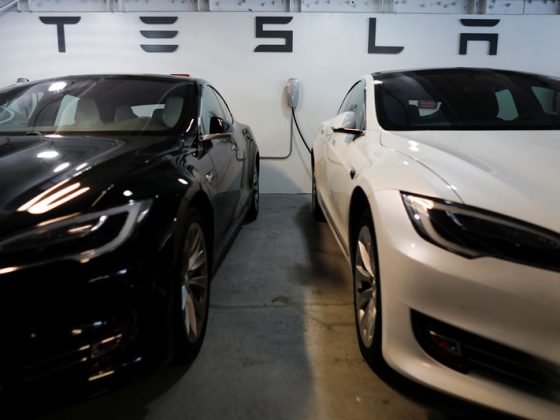Investing.com — Shares of AB-InBev rose after Citi upgraded the stock to “buy” from “neutral,” reflecting increased confidence in the company’s earnings outlook and potential catalysts ahead of its third quarter results, set for release on October 31st.
At 4:17 am (0817 GMT), AB-InBev was trading 2.5% higher at €60.88.
Citi’s move to upgrade the stock was driven by a combination of strong cost control, improving margins, and the expectation that AB-InBev will exceed its full-year 2024 organic EBITDA growth guidance of 4% to 8%.
Citi analysts remain confident in AB-InBev to overcome challenges in the U.S. and Mexico, despite the current headwinds in these markets.
While third-quarter volumes are anticipated to come in below consensus estimates due to weak demand in these key markets, the company’s rigorous cost-cutting initiatives, especially in the U.S., are expected to boost margins.
This has resulted in higher confidence in AB-InBev’s earnings deliverability for both FY24 and FY25, with margins projected to continue expanding well into 2025. The company is strategically adjusting its U.S. operations in light of permanently reduced Bud Light volumes, a factor in this outlook.
The U.S. market has been a particular focus due to lingering softness from the Bud Light controversy, which has had a notable impact on sales. Citi forecasts that U.S. sales-to-retailers will decline by 3.0% in the third quarter, reflecting ongoing subdued momentum for Bud Light, while sales-to-wholesalers are expected to drop 2.3%.
Despite these volume challenges, AB-InBev is benefiting from pricing actions taken earlier in the year, along with a 5% decline in cost of goods sold per hectoliter.
The absence of additional wholesaler support measures, which had been a drag on margins, is also contributing to the improved financial outlook, with U.S. EBITDA margins forecast to expand by 250 basis points in the third quarter.
In the international markets, Brazil remains a strong point for AB-InBev, with Citi predicting beer volumes in the country to grow by 1.5% for the third quarter. Production in July accelerated, and robust performance is expected to continue through the quarter.
Additionally, the company is benefiting from pricing actions taken earlier in the year, contributing to revenue-per-hectoliter growth of 4%. COGS growth is expected to be lower, further supporting margin expansion in the region, with South American EBITDA margins projected to rise by 140 basis points.
However, not all regions are expected to perform as well. In the Middle Americas, volumes are likely to be flat or slightly negative, held back by factors such as poor weather in Mexico and a consumer environment still feeling the effects of economic pressure.
In China, macroeconomic challenges and weak consumer confidence are anticipated to weigh on volumes, with Citi forecasting a 6% decline in organic volumes for the region. Yet, even in these regions, the company is benefiting from its pricing strategy and cost controls, helping to cushion the impact on overall margins.
Citi’s outlook for AB-InBev extends beyond short-term performance, with a positive view on the company’s medium-term potential. There is growing confidence that the company can return to pre-pandemic EBITDA margins of around 40%, compared to the 34% level seen in FY23, as commodity prices stabilize and pricing power improves across its markets.
The analysts also flag that by the end of 2024, AB-InBev’s net debt/EBITDA ratio is expected to fall below 3x, creating room for shareholder returns, including a potential $1 billion share buyback to be announced with the third quarter results. This potential buyback could provide technical support for the stock, further boosting investor sentiment.
Citi’s increased target price of €69, up from €61, reflects the improved earnings outlook, alongside a lower weighted average cost of capital of 6.9%, down from 7.1%. This target is based on a discounted cash flow model, incorporating a risk-free rate of 3.4% and an equity risk premium of 5%.
The lower WACC and higher confidence in AB-InBev’s margin trajectory have offset minor downward revisions to FY24 and FY25 earnings per share, primarily driven by foreign exchange factors.


